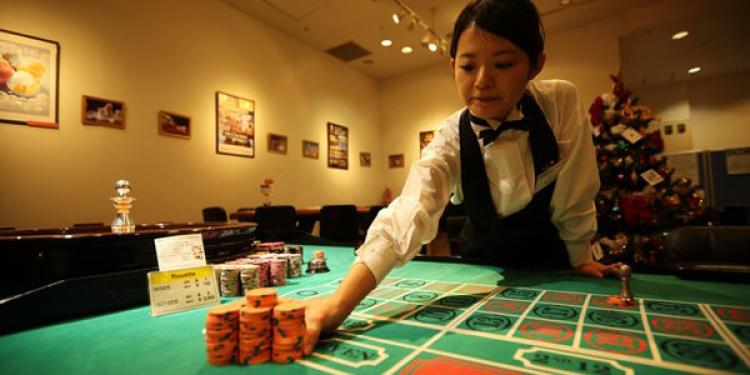To Be Or To Be Delayed: the Saga of Japanese Casino Bill
Posted: November 5, 2014
Updated: June 4, 2017

There are growing fears that Japanese casino bill will be postponed indefinitely, putting casino future at risk.
There are some not so positive Japanese gambling news coming from the Land of the Rising Sun. It seems that the lawmakers will indefinitely postpone the legalization of casinos in the country. The reasons are quite trivial – Prime Minister Shinzo Abe simply lacks political leverage to do so this year.
According to sources close to the Prime Minister, the change in Japanese gambling laws will not be happening this year and thus will be delayed, due to the fact that his cabinet is under tremendous pressure following a number of scandals, and thus there’s no time to deal with the casino draft law.
The implications
It seems that Japan will not pass the much-anticipated casino bill this year
• Japanese gambling laws were expected to change allowing integrated casino resorts
• Recent weakening of Prime Minister’s political support is the primary reason for delay
• The bill might be postponed as much as several years now
The latest delay is actually yet another one in what is already a long list of postponements. It will certainly be a blow for the Prime Minister, who was relying on casino resorts for his economic growth program. One more negative effect of the latest indefinite postponement is the fact that there’s no very little hope that any casino resort will be built on Japanese soil before the 2020 Olympics in Tokyo.
The other disappointed parties are of course giant casino developers from around the world starting as far as Las Vegas and ending up as close as Macau. Renowned gambling establishments including MGM Resorts International, Caesars Entertainment Corp., and Las Vegas Sands Corp. were all hoping Shinzo Abe will be able to open up the integrated casino resort market.
Asia’s leading equity brokers and investment group, CLSA, have estimated the Japanese casino market to be generating revenues of $40 billion per year, once fully developed. Naturally, the more casinos are postpones, the longer the state coffers will have to live without tax money from that revenue.
What’s happening with the casino bill
The lawmakers, who actually support legalization of casinos in Japan, are intending to push back the vote on the draft bill instead of trying to pass it during the current parliamentary session. It might seem strange, but in their defense they do intend to keep the bill alive rather than have it failed this year.
It looks like it won’t be coming up for discussion next year either. There are a big number of higher priority bills before the Parliament right now, including those connected with national defense. It’s quite understandable why casino resorts are not the parliamentary priority in these circumstances.
One of the sources inside the parliament was quoted: “If they can’t pass it now, I doubt whether they’ll ever be able to pass it.” This explains the reasons for delaying the passage of the bill instead of pushing through with it at this point.
Opposition
The casino resort bill was already cutting it short to be passed by the November 30 deadline. It was in a tight race facing opposition from some members of Abe’s very own Liberal Democratic Party, as well as from Komeito, his junior coalition party. The opposition came due to concerns over gambling addiction rise connected with building casino resorts in the country.
As for the direct opponents, they have stepped up their campaign in the recent times. One of the main focus was increasing the public’s attention to the rates of gambling addiction, already high in Japan. While such addiction was primarily attributed to pachinko machines, spread around the country, they were confident that legalizing casinos will further increase problem gambling.
Recent developments
One of the biggest problems for proponents was the resignation of two cabinet ministers last month, who quit over dodgy practices related to funding, which put the Prime Minister on the defensive instead of focusing on the casino bill.
A source close to the cabinet said: “It’s not just about the extra time required due to the two resignations… it’s no longer a question about casinos and addiction.” The source went on to add that the current leadership now lacks political support.
Just a few weeks back, industry analysts were widely expecting the that the casino resort bill will indeed be adopted by the end of November, with the second bill outlining casino regulations to be passed in 2015.
Now, expectations are much worse. One expert said that there’s a big chance the casino legislation will not be altered for another 3-4 years, meaning that the actual casino resorts will only start appearing around 2024.
One of the initial writers of the bill, Toru Mihara, who teaches at the Osaka University of Commerce, opined that should the bill fail to pass in this legislative session, it will mean a “total loss of face” for the Prime Minister and the cabinet. He also confirm that the bill will have difficulties passing next year, as there are by far more relevant and newer topics coming up.












